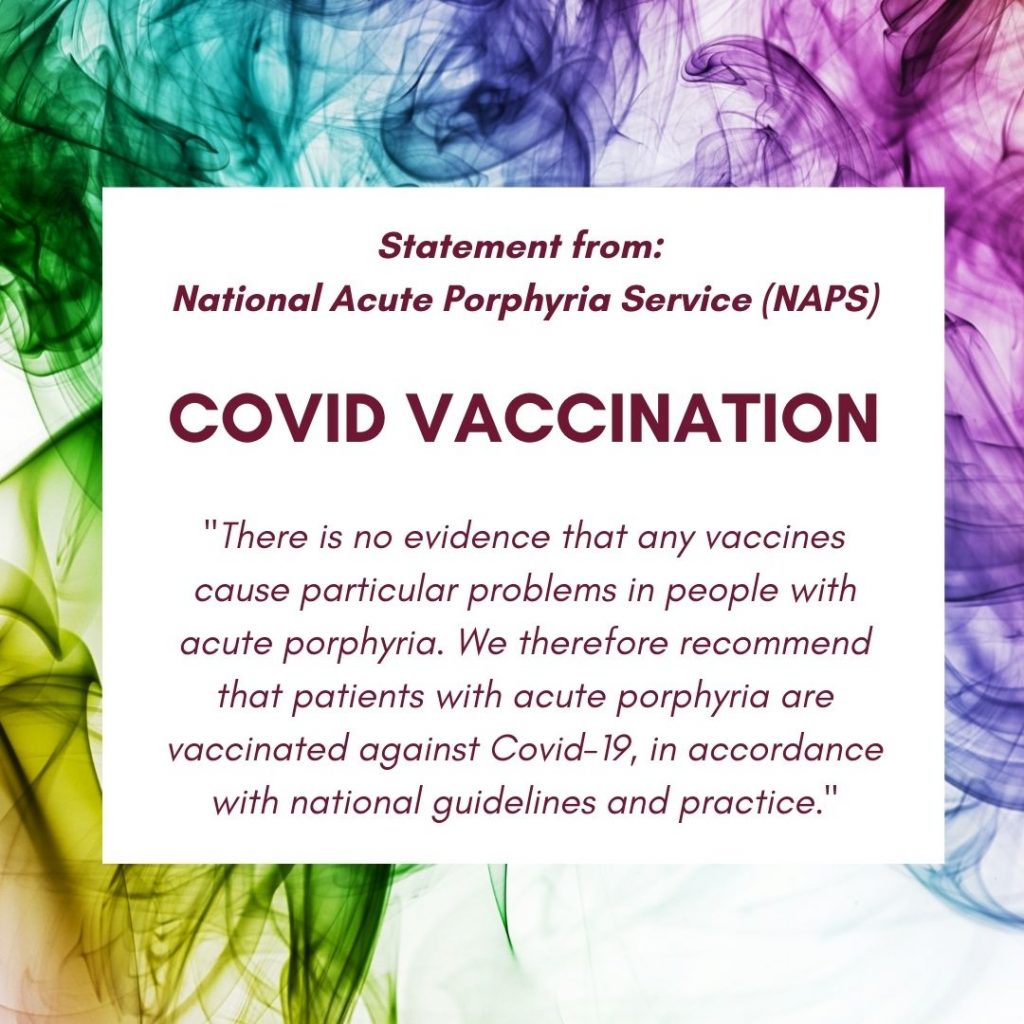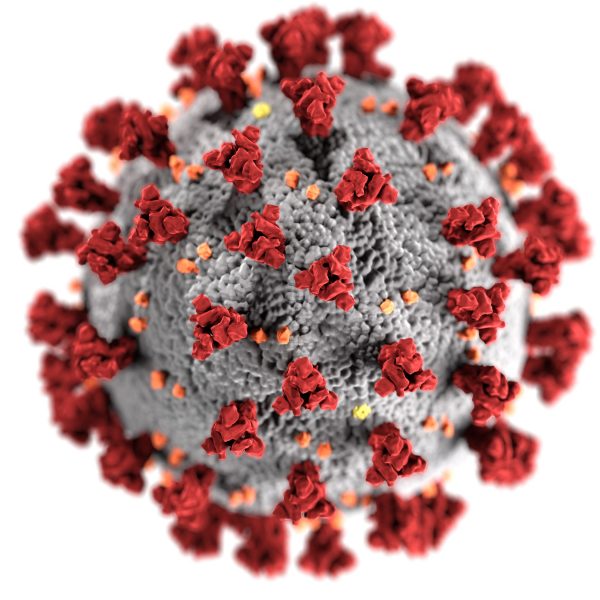Coronavirus (Covid-19) advice
Lots of people affected by porphyria are understandably concerned about coronavirus. The situation is constantly changing and the best way for you to keep up to date on recommended actions is to check a regularly updated and reliable source of information, such as www.nhs.uk/conditions/coronavirus-covid-19/.
Am I at greater risk of coronavirus due to my porphyria?
It is thought, that for the majority of people with porphyria, you will be at no greater risk of contracting Covid-19 or at any greater risk of an adverse outcome than the general population. Please follow the advice provided by the NHS www.nhs.uk or www.gov.uk.
If you have very active acute porphyria (receiving regular haemarginate or on the Givosiran trial), your porphyria team will contact you if you need to take any additional precautions.
People with active acute porphyria need to take into consideration that any infection can cause an attack in acute porphyria, so catching the virus could cause an attack even if you are normally quite well. This would not be good for you and would also put increased pressure on the health service at a time of great strain. For this reason, it would seem sensible to err on the side of caution and consider yourself more at risk.
If you have other health complications (whether connected to your porphyria or not), such as asthma, heart failure, chronic kidney or liver disease, you most likely fall into the category of ‘underlying health conditions‘. If you are in this group, you are also considered to be vulnerable.
Specific advice for patients having regular visits from a homecare nurse, homecare deliveries, or regular visits to hospital for treatment
You should inform both your porphyria centre and your treatment provider (eg homecare nurse, hospital nurse) as soon as possible if you or anyone in your household has definite or suspected Covid-19, or has a cough and flu like symptoms. Alternative arrangements may need to be made to ensure your treatment continues safely.
What can I do to protect myself?
The advice to everyone, to protect yourself and others, is to:
- Regularly wash your hands thoroughly (for 20 seconds) with soap and water.
- Wash your hands when you get home or get to work.
- Cover your mouth and nose with a tissue when you cough or sneeze.
- Put used tissues in the bin straight away and wash your hands afterwards.
- Avoid close contact with people who are unwell.
- Avoid touching your face.
If you have a new cough, loss of smell or taste, or high temperature, you should arrange for a Covid-19 test and stay at home for the period advised by the Government and NHS.
Should I be shielding?
For most people with porphyria, shielding is not necessary. However, if you have active acute porphyria or other health complications (whether connected to your porphyrias or not), such as asthma, heart failure, chronic kidney or liver disease, you may have been identified as clinically extremely vulnerable. If you are in this group, you will previously have received a letter from the NHS or from your GP telling you this. You may have been advised to shield in the past. If you are in this group, you are considered to be vulnerable and must be extremely stringent with social distancing measures to try to protect yourself.
Please note, this advice is constantly changing and we may not always have the resources to keep this page updated on a daily basis, so please check www.gov.uk for the most up-to-date advice.
If you are advised to shield or self-isolate (for example, due to Covid-like symptoms or a member of your household testing positive for Covid-19), are very worried about going out or decide you’d prefer not to go out at all, there are still plenty of things you can do.
- Stay in touch with people over the phone or online.
- Ask someone to help with any shopping or running some errands.
- Try to stay active around the house and keep moving.
Why do I feel worried?
It’s completely understandable to be worried about the impact coronavirus may have on you or those you care about. Try to stay calm and follow the official advice from the Government. Mind has some helpful advice for those who feel anxious: www.mind.org.uk/information-support/coronavirus-and-your-wellbeing/
COVID-19 vaccinations
Porphyria specialists around the world have started to receive questions about whether COVID-19 vaccines are safe. The European Porphyria Network (EPNET) and the UK porphyria specialists have agreed the following advice:
We consider that as with all other vaccines, the COVID-19 vaccines carry no additional risk in acute porphyria, and we recommend that people with AIP, VP or HCP accept vaccination when this is offered.
Porphyria patients with EPP/XLEPP, PCT and CEP do not need follow the usual safe drugs advice and are also recommended to have the vaccine when it is offered to them.



